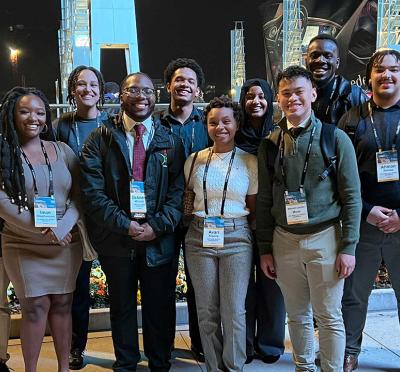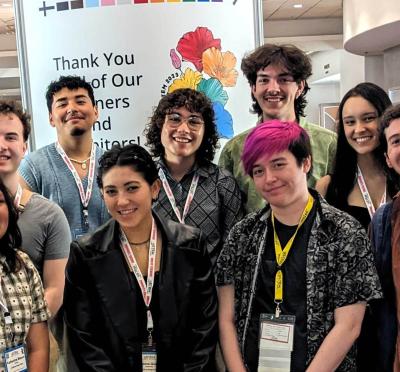The College Assistance Migrant Program is a federally funded program for students whose families are involved in seasonal agricultural work. At Oregon State, most CAMP participants come from Spanish-speaking or bilingual homes. Some are not only first-generation college students, but first-generation U.S. citizens as well.
The program provides these students financial and academic support during their first year of college to prepare them for further success. Students typically apply during their senior year of high school. To participate in CAMP, they must first apply and be accepted for admission to Oregon State University.
Out of a typical CAMP cohort of 35 students, about 10 each year are in the College of Engineering, says program director Maria Andrade-Diaz. And every summer, the college partners with CAMP to host the Migrant Engineering Institute for high school students. The weeklong residency gives participants a taste of campus life and nurtures their interest in engineering.
“The summer institute helps these students to understand and believe that college can be a reality for them,” said Cristian Reyes, student outreach and recruitment coordinator for the college. “They also get a chance to explore the diversity of options available within engineering, through lectures, hands-on activities, and personal interactions with current students.”

Janelle Godinez, a second-year mechanical engineering student, didn’t find out about CAMP until about a week after she had enrolled at Oregon State. She had participated in a bridge program through the Louis Stokes Alliances for Minority Participation, and a staff member there had suggested she apply.
Coming from Hermiston, Oregon, famous for its watermelons, Godinez qualified for CAMP based on her personal connections to agriculture. As a teen, she had worked for Bellinger Farms and as a scale house operator on a ranch in Washington.
As a student at Hermiston High School, Godinez drove herself hard to graduate with a 4.0 GPA. She participated in the school’s specialized program of study for industrial and engineering systems, where she received some early hands-on experience with high-tech tools like laser engravers and AutoCAD. Still, she says, she didn’t even consider college until her senior year.
“It seemed so far-fetched,” she said. “Nobody around me, nobody in my family, had ever been to college. I didn’t even know how to start.”
A workshop called “College Possible” provided inspiration. Godinez heard from an Oregon State mechanical engineering graduate and learned about financial aid opportunities. She pursued a few local scholarships and applied to Oregon State. When she was accepted, she was awarded the Finley Academic Excellence Scholarship.
Godinez says she benefited from the additional support she found after joining CAMP near the start of her first year.
“We received a small stipend to help with expenses, and we have classes focused on academic success and leadership skills,” she said. “But more than anything else, I appreciate the sense of community we have, being part of a group of students with similar backgrounds all sharing this experience together.”
Last summer, Godinez was awarded a 10-week internship working with the National HEP/CAMP Association. The organization coordinates with universities, colleges, and nonprofits that administer a High School Equivalency Program, a College Assistance Migrant Program, or both. Godinez says the internship opportunity, sponsored by the U.S. Department of Agriculture, had not been widely publicized.
“It was a pilot program that got approval at the last minute,” she said. “The only reason I found out about it is that I happened to be in the academic advising office when they were talking about it. I said, ‘Hang on, that sounds like something I should try for!’”
About a month later, Godinez was in Washington, D.C., working as a HEP/CAMP program analyst.
“We were focusing on urban agriculture,” she said. “So, we got to do things like visit a startup in Virginia that produces sprouts and microgreens in an abandoned data center. The company was founded by two brothers, one with a background in mechanical engineering.”
Godinez, who has applied for the MECOP program and dreams of someday working for Boeing (or as a Disney Imagineer), says her visit to the urban farm sparked within her a bit of latent entrepreneurialism.
“I think it would be cool to go out there, get some experience working for a big company, and then, maybe someday, turn that experience into something I can make on my own.”



